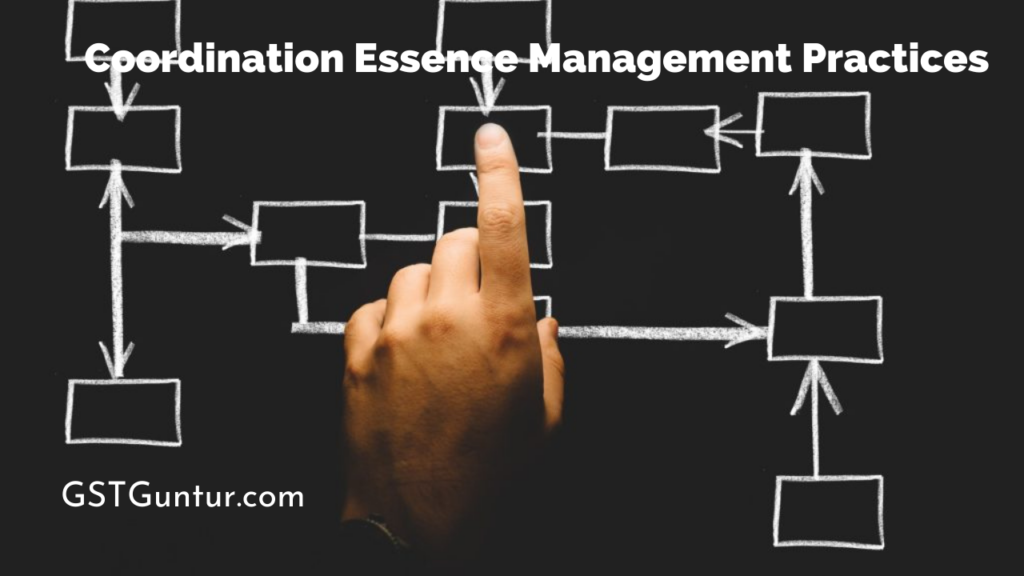Coordination Essence Management Practices: Managers oversee the operations of various departments in order to attain organizational objectives when the organization structure is created, and departments are designed. Top management conveys the organisation’s goals to department managers and encourages them in carrying out their obligations of organizing, staffing, planning, controlling and directing for their respective departments. Coordination is the essential aspect in any organization as it brings unity of action and integrates various activities of the organization.
They integrate the objectives of the organization with the objectives of the departments and harmonize departmental goals with organizational goals. Thus, coordination assists each managerial function and each departmental activity contribute to organizational goals.
- Coordination while planning
- Coordination while organizing
- Coordination while staffing
- Coordination while directing
- Coordination while Controlling
- Coordination is fundamental at all levels of management
Coordination While Planning
When plans are made, managers make sure that different types of plans such as long term and short term, strategic and routine, policies, procedures and rules operate in coordination and harmony with one another for diverse departments to successfully implement these strategies.
Coordination While Organizing
Division of work into departments based on similarity of activities, defining their authority and responsibility, appointing people to manage these departments and creating the organization structure aims to coordinate departmental activities with the organizational goals. If activities are divided haphazardly, some activities might not be assigned to people without organising, and some might be given to more than one person.
Coordination while Staffing
Managers make sure that people are placed on different jobs according to their capabilities and skills after the jobs have been created. This ensures placing the right person in the correct position to achieve coordination amongst their work activities.
Coordination while Directing
When a manager guide subordinates through leadership, communication and motivation, he tries to coordinate the organizational activities. It is also an aim to harmonize independent goals with organizational goals. Direction maintains unity and integrity among activities of members in the organization.
Coordination while controlling:
Controlling makes sure that actual performance conforms with planned implementation. The function of controlling information systems or budgets is to coordinate the various organizational activities. Every managerial activity is therefore coordinated to contribute towards organizational goals. Coordination is needed throughout the organization.
Coordination is Fundamental at all Levels of Management
- Top-level: It requires coordination to combine all the activities of the organization and lead the attempts of all people in one common direction.
- Middle level: Coordination is essential to balance the actions of many departments so that they can function as a part of a single organization.
- Lower Level: It needs coordination to integrate the activities of workers towards the achievement of organizational objectives.
After examining the above-given features, we can assume that coordination is not a straightforward function of management, but it’s the “essence of management”, or we can say that all the functions are flowers and coordination is a thread that binds these flowers to form the garland of organization. Coordination is a vital strength of organizational success.
